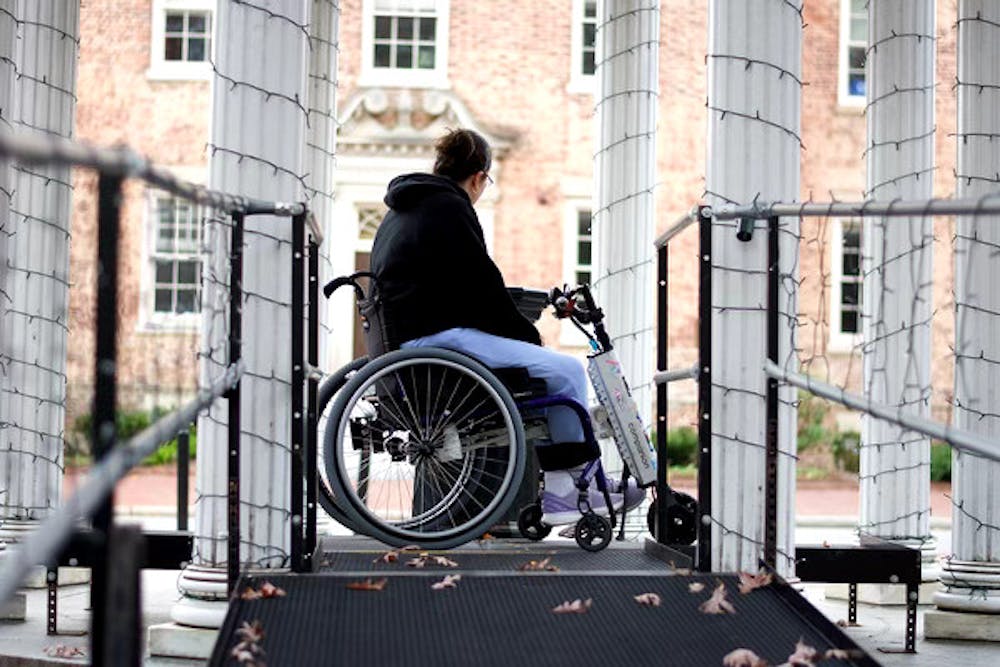July 26 marked the 33rd anniversary of the Americans with Disabilities Act, a landmark civil rights law that prevents discrimination on the basis of disability. Observance of this legislation's anniversary comes at the end of Disability Pride Month.
“July being Disability Pride Month, is important because it is an acknowledgment of the United States recognizing that we are going to make the country more accessible and adaptable and welcoming to people with disabilities,” Eric Garcia, senior Washington correspondent at The Independent and author of "We’re Not Broken: Changing the Autism Conversation," said.
Garcia has autism and graduated from UNC in 2014.
According to the Centers for Disease Control, up to one in four adults in the United States have a disability.
Jennifer Diliberto is a clinical associate professor in UNC's School of Education, with a concentration in disabilities and special education. She said it is important to remember that a disability is only one aspect of an individual's identity, and does not define the person as a whole.
Individuals with disabilities are often treated as victims before people capable of joy, junior and former Campus Y co-president Laura Saavedra Forero, who uses a wheelchair, said.
“Too often folks have correlated disability with tragedy or something like that, and never really take the time to value the idea that disabled joy is revolutionary and an active form of resistance, and that simply surviving in such an ableist world is a feat that deserves to be celebrated,” she said.
Disability Pride Month creates a space to celebrate the resilience and joy of the disabled community, she said.
People with disabilities have long struggled to feel welcomed in society, especially in higher education, Garcia said. On a campus as old as UNC’s, everyday activities can become a challenge.



